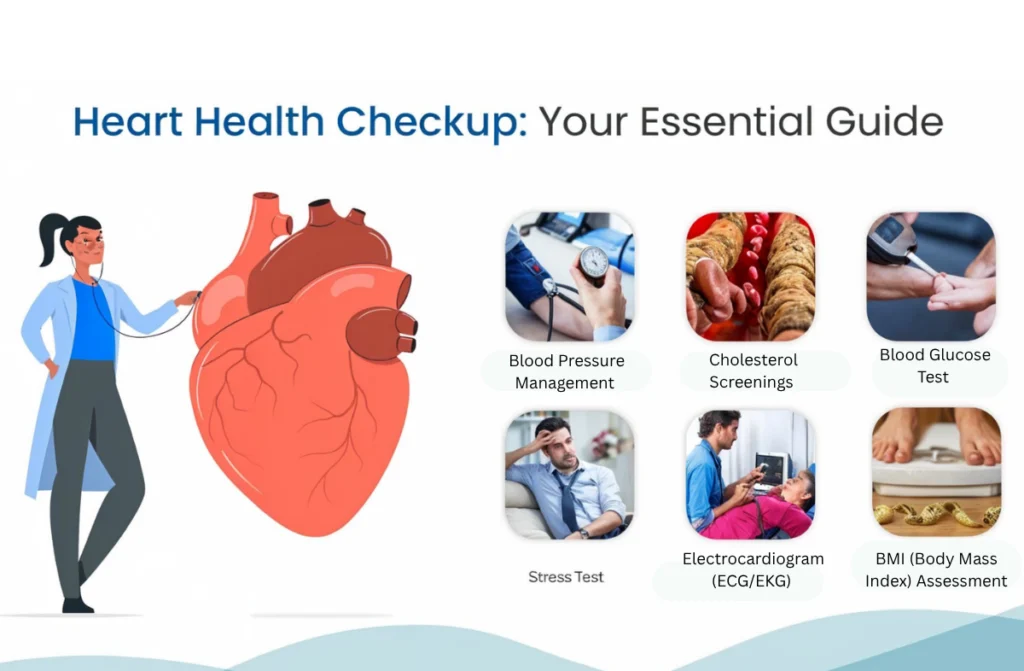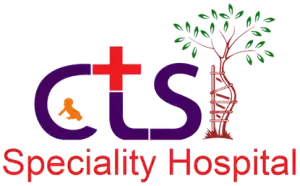Heart disease is one of the leading causes of death worldwide, but the good news is that most heart issues are preventable with early detection and management. By being proactive and knowing the signs, you can make informed decisions about your health. Understanding the 3 key risk factors for heart disease is crucial in identifying potential issues early. In this blog, we’ll guide you through essential steps to monitor your heart, signs to watch for, and tips to maintain a healthy heart. Know your heart health and take control of your well-being.
Early Signs of Heart Disease
Recognizing the early signs of heart disease is essential for preventing serious complications. Heart disease often develops slowly, and early symptoms may be easy to miss. Some common signs include:
- Chest pain or discomfort: This can feel like tightness, pressure, or squeezing in the chest. It may occur during physical activity or stress. If you experience this, especially with other symptoms like shortness of breath, seek medical help.
- Shortness of breath: Feeling winded during mild activity or at rest can signal heart issues. If you notice this regularly, it’s time to know your heart health and get checked by a doctor.
- Fatigue: Unexplained tiredness, even after a full night’s rest, can indicate that your heart isn’t pumping enough oxygen to your body. Persistent fatigue is often an overlooked symptom of heart disease.

Check Your Blood Pressure
High blood pressure, or hypertension leading to heart problem, is a major risk factor for heart disease. Regularly checking your blood pressure is one of the easiest ways to keep track of your heart health. Know your heart health by staying on top of your blood pressure readings and making adjustments to prevent long-term damage.
- Take regular readings: You can monitor your blood pressure at home using an automated cuff or visit your doctor for a more accurate reading.
- Know your numbers: Ideal blood pressure is below 120/80 mmHg. Anything higher may require lifestyle changes or medication.
- Address high readings: If your blood pressure is consistently high, talk to your doctor about a treatment plan to manage it.
Check Your Heart Rate
Can a healthy person get heart disease? Yes, even healthy individuals can develop heart disease. Your heart rate shows how well your heart is functioning.
- Monitor regularly: Check your pulse by placing two fingers on your wrist or neck. A normal resting heart rate for most adult’s ranges from 60 to 100 beats per minute.
- Identify irregularities: If your heart rate is consistently irregular or outside the normal range, it may indicate a heart issue. Know your heart health by regularly monitoring your heart rate, as early detection can help prevent serious complications.
- Stay active: Regular exercise helps to maintain a healthy heart rate and overall heart health.
Using a Portable EKG Device to Check Your Heart
Portable EKG devices are a great way to monitor your heart’s electrical activity. They help detect arrhythmias, heart attacks, and other heart issues.
- Easy access: These devices are small and user-friendly, allowing you to monitor your heart health at home or on the go.
- Detecting problems early: By detecting irregular heartbeats early, you can prevent damage and work with your healthcare provider. Check your risk of heart attack by monitoring your heart rate and seeking advice if you notice unusual symptoms like palpitations.
- Speak with your doctor: If you suspect irregular heart rhythms, an EKG is a useful tool to confirm the issue and get the right treatment.
Signs of Heart Attack
Recognizing the signs of a heart attack early can save your life. The symptoms can vary, but here are some common warning signs:
- Chest pain or discomfort: Sudden chest pain that doesn’t go away may be a sign of a heart attack.
- Sweating and nausea: Unexplained sweating, along with nausea or indigestion, may be linked to heart issues.
- Pain radiating to the arm, neck, or jaw: If you feel discomfort in areas like your arm or jaw, it’s important to seek immediate help. Know your heart health by recognizing these signs early, as they can be indicative of a serious heart condition like a heart attack.
Read alos: Permanent Pacemaker Implantation
5 Tips for a Healthy Heart
Maintaining heart health is essential for overall well-being. Here are five effective Tips for a Healthy Heart to keep your cardiovascular system strong.
- Follow a Heart-Healthy Diet:Consume nutrient-rich foods like fruits, vegetables, whole grains, and lean proteins while avoiding processed and high-sodium foods.
- Stay Physically Active: Engage in at least 30 minutes of moderate exercise daily, such as walking, jogging, or cycling, to strengthen your heart.
- Manage Stress Effectively: Practice relaxation techniques like meditation, deep breathing, or yoga to reduce stress and promote heart health.
- Maintain a Healthy Weight: Keeping a balanced weight reduces the risk of heart disease and helps regulate blood pressure and cholesterol levels.
- Get Regular Health Checkups: Routine screenings for blood pressure, cholesterol, and sugar levels are essential Tips for a Healthy Heart to detect early signs of heart issues.
Following these steps can significantly improve heart health and enhance overall longevity.
Ways to Improve Heart Health
Check your risk of heart attack by understanding your family history and lifestyle factors. Here are some key ways to improve heart health:
- Eat heart-healthy foods: Focus on a diet rich in fruits, vegetables, whole grains, lean proteins, and healthy fats. Reduce your intake of processed foods, salt, and sugar.
- Exercise regularly: Aim for at least 150 minutes of moderate aerobic activity each week. Exercise strengthens the heart and improves circulation.
- Quit smoking and limit alcohol: Smoking damages the heart and arteries, while excessive alcohol can raise blood pressure and contribute to heart disease.
- Manage stress: Chronic stress contributes to high blood pressure and heart disease. To manage stress, try mindfulness, relaxation techniques, or talking to a professional. Know your heart health by keeping stress under control to help protect your heart.
3 Risk Factors for Heart Disease
Heart disease is influenced by several risk factors. Here 3 key risk factors for heart disease
- High cholesterol: Elevated cholesterol levels can lead to plaque buildup in the arteries, restricting blood flow and increasing the risk of heart disease.
- Hypertension (high blood pressure): High blood pressure can damage blood vessels and put strain on the heart.
- Smoking: Smoking accelerates the buildup of plaque in arteries and increases the risk of heart disease and stroke.
Can a Healthy Person Get a Heart Disease?
You may wonder, can a healthy person get heart disease? Even those who seem healthy can develop heart disease. While a healthy lifestyle can significantly reduce the risk, factors like genetics, family history, and underlying conditions such as high blood pressure or high cholesterol still contribute to the development of heart disease.
Conclusion
Maintaining heart health is essential for a long, active life. By understanding the early signs of heart disease, monitoring key indicators like blood pressure and heart rate, and adopting heart-healthy habits, you can protect your heart from serious issues. For more information on how to keep your heart healthy, or if you’re experiencing any concerning symptoms, reach out to CTS Hospital. Our team of specialists is here to help you know your heart health and take the right steps to stay healthy.
